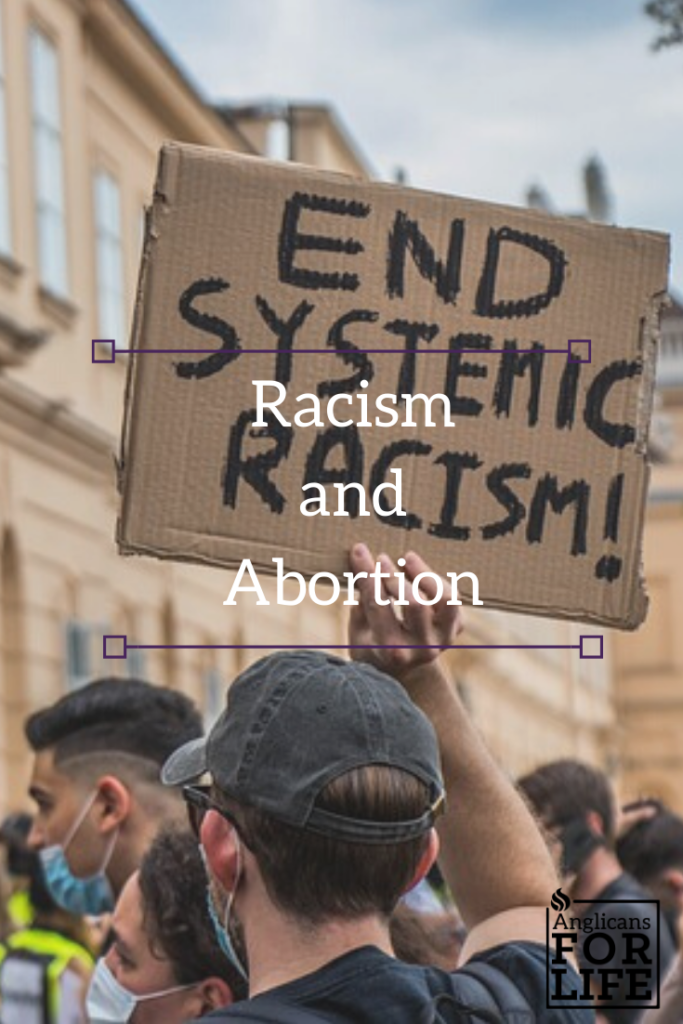At the end of May, I was scrolling through my Facebook feed and came across a letter written by a few Anglican Bishops that addressed the awful death of George Floyd. I barely finished the first sentence before I began to weep. In the first few paragraphs they said everything I have been trying to say about the sanctity of life for years, especially when we hear about senseless killings:
George Floyd was made in the image of God and as such is a person of utmost value. This is not true because a few Anglican bishops issue a letter. This conviction arises from our reading of Scripture. The Psalmist said:
For you formed my inward parts; you knitted me together in my mother’s womb. I praise you, for I am fearfully and wonderfully made. Wonderful are your works; my soul knows it very well. (Psalm 139:13-14)
The opening book of our Scriptures declares the value of all human life:
So God created man in his own image, in the image of God he created him; male and female he created them. (Gen 1:27)
What happened to George is an affront to God because George’s status as an image bearer was not respected. He was treated in a way that denied his basic humanity. Our lament is real. But our lament is not limited to George and his family. We mourn alongside the wider Black community for whom this tragedy awakens memories of their own traumas and the larger history of systemic oppression that still plagues this country.
George’s death is not merely the most recent evidence that proves racism exists against Black people in this country. But it is a vivid manifestation of the ongoing devaluation of black life. At the root of all racism is a heretical anthropology that devalues the imago dei in us all. The gospel reveals that all are equally created, sinful and equally in need of the saving work of Christ. The racism we lament is not just interpersonal. It exists in the implicit and explicit customs and attitudes that do disproportionate harm to ethnic minorities in our country. In other words, too often racial bias has been combined with political power to create inequalities that still need to be eradicated.
The next day I came across an article from the online magazine First Things titled “A Call to Conversion,” which picked up on the themes in the bishops’ letter. I commend both communications to you. Both focus on the fundamental truth that all human beings are made in the image of God, and therefore, must be valued and treated as sacred members of God’s created order. Both acknowledge that any time one person is dehumanized it degrades all human beings.
It got me thinking about the power of words, especially when they are used to label or define a group of people we do not like. That is when words become weapons to dehumanize others.

Dehumanization begins with the use of labels to identify people instead of seeing individuals with names, families, histories—someone who is loved and was created with purpose. While some labels are affirming, many that are used in today’s culture are applied as a means of classifying people in ways that denote an “us versus them” mentality. This separation deepens and darkens when these labels eventually transform into a “they are bad, and we are good” message.
When I say George Floyd was a person, it communicates his status as a human being; when I say he is a black man, I have now categorized him by his race and biological sex. When I refer to an unborn child in the womb as a clump of cells, I am denying his or her humanity and existence as a person also made in God’s image.
We all label for convenience of description to some degree, but sadly labels can often be used to pit people against each other and deny what unites us – our humanity, our DNA, that we all bleed red, that we all live and die, and most importantly, that we are all made in God’s image.
The first thing we should see in one another is not what makes us different but that which makes us one. We are all made by God and carry His image imprinted on our hearts. Therefore, I repeat, we are all sacred and should be valued.
In opposition to this, abortion and racism share the common goal of dehumanizing and devaluing their victims by employing labels that deny their humanity and reduce them to something that can be dismissed, destroyed, or discarded.
One of the key points the First Things article makes that reminds us of why we, as pro-lifers, must reject racism is found in the second to last paragraph: “Opposition to racism and prejudice is part of the pro-life position – because these moral problems are the result of redefining human dignity to exclude certain social groups.”
As people who believe in the sanctity of life, we must check our hearts when tempted to use labels to define people. And, even more so, we must always seek to see the image of God in each person before we see anything else.
by Deacon Georgette Forney, President, Anglicans for Life
